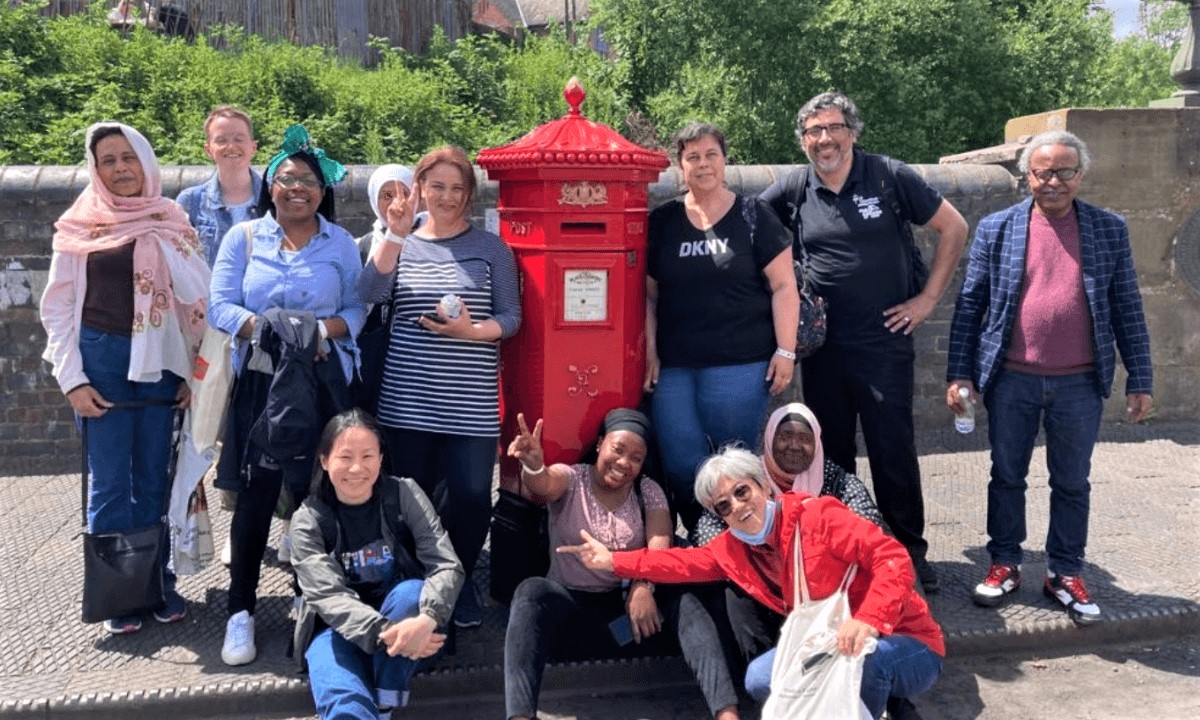Columban Lay Missionary Nathalie Marytsch explains how her faith has changed and what she has learned through interreligious dialogue in Britain.
Engaging in interreligious dialogue (IRD) is both a joy and challenge in my experience as a lay missionary in Britain. As well as witnessing to my own faith and way of life, I am called to acknowledge, preserve, and encourage the spiritual and moral truths of those of other faiths, as was proclaimed in the Vatican declaration Nostra Aetate nearly 60 years ago.
On 28 October 2022, the Catholic Church celebrated 57 years of the ground-breaking declaration on the relation of the Church to non-Christian religions. It highlights interreligious dialogue as an integral part of the Church’s evangelising mission and offers the magisterial basis to building collaboration and good relations with people of other faiths and those of no faith.
The historical meeting between Pope Francis and Grand Imam of al-Azhar, Ahmad Al-Tayyeb, in Abu Dhabi on 4 February 2019 to co-sign the document ‘Human Fraternity for World Peace and Living Together’, as well as the words of the Pope’s recent encyclical, Fratelli Tutti, encourage me to continue encountering believers of other faiths as sisters and brothers.
Together, Pope Francis and the Grand Imam declared that, “God has created all human beings equal in rights, duties and dignity, and has called them to live together as brothers and sisters.” It echoes a statement made by the Bishops of India, who, in 2016, said that interreligious dialogue is not simply for the sake of diplomacy, consideration, and tolerance but to build relationships in a spirit of truth and love so that we live in peace and harmony.
The celebration of Nostra Aetate acts as a reminder of the importance of interreligious dialogue in the mission of the Church. It is also a reminder of what I have learned and gained through engaging in dialogue initiatives in Birmingham.
Firstly, engaging in dialogue and building relationships is a slow process that requires humbleness and patience. It can be hard to measure. Engaging in dialogue does not require academic qualifications of training for it to be fruitful. It requires an intentionality to build meaningful relations that break down barriers of fear and division for positive change and impacts people’s lives.
Secondly, I’ve learned that all encounters must be anchored in respectful realisation of our differences and the appreciation of the beauty that diversity brings. Empathy also must be at the centre of dialogue. I have learned to appreciate and long for my Muslim friends’ rhythmic prayer life, their sense of belonging together and deep search for peace and wellbeing.
Finally, I’ve come to realise that my own faith has strengthened because of interreligious dialogue. The encounters I’ve had throughout the years have deepened my prayer life and taught me that there are many forms though which one can pray and seek to build God’s Kingdom.
It has also helped me develop a more rooted connection with nature and a more respectful approach to the gift of creation.
Learn more about Interreligious Dialogue and the Columbans here: https://columbanird.org/

